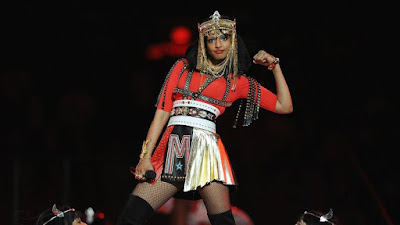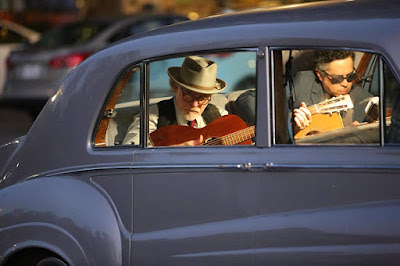At the centre of the film is Odessa Young's Lily, a high school student prone to taking lewd selfies to send to "Daddy". Along with the rest of the school, she and her three girlfriends, Em, Sarah & Bex (Abra, Suki Waterhouse & Hari Nef, respectively) join in with the viral spreading and meme-ification of every new piece of scandal that appears in increasing regularity. Although the poster may feature all four young women dressed in red leather coats (a knowing
These teenagers exist in an age where their every move is published on the internet. The "adults" in the film may think they know what's best for the younger generation, but they are less equipped to pay the price of having their internet search history revealed and having to deal with a small subsection of the community quickly descending into a vocal, violent mob. It is of no coincidence that this film is set in Salem, home of the infamous witch hunts, as both the Mayor and the school Principal face the same braying mob (although under vastly different circumstances), demanding action to match their outrage. The film pulls no punches in asking the audience to question their allegiances and ask what side they would take in the argument, as characters fall victim to the hacker's indiscriminate outings and are branded pedophiles and child molesters without evidence of that. Lily's actions and relationship with "Daddy" have drastic consequences for her family and others, but is she a sexually confident young woman taking advantage of modern courtship rituals, or is she a child being manipulated by an older man into sending pornography?
Assassination Nation is upfront about its satirical approach, delivering its message with all the subtlety of a baseball bat to a cheerleader's head. It often skirts pretty close to sacrificing story in favour of style, but has enough nastiness propelling it forward to paint a troubling picture of a society not too far away from our own, filled with revenge porn and violent groups that wouldn't look out of place in The Purge films. Although not the main focus of the film, I found the most compelling story to be of Bex (Hari Nef), the transgender member of the group. Looking for a nice, normal teenage relationship with one of the jocks but having to deal with how easily mob mentality will dictate people's actions, for all the many outlandish set ups in the film, Bex's story seemed to be the most disappointingly, believably truthful.
Taking stylings from exploitation films and visual cues and colour schemes (good old red, white and blue) from Gaspar Noe and Joseph Kahn, Assassination Nation is a vibrant, nasty, clever film that's tough on the constitution of the prudish and a shit load of fun. Come for the shock value, stay for the marching band cover of Miley Cyrus's We Can't Stop. Assassination Nation is one wild ride from start to finish.
Verdict
4/5












































